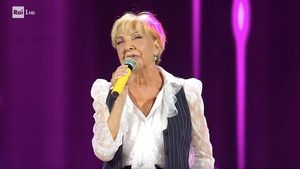Across Russia, events are being organized to commemorate the 80th anniversary of Victory Day, providing opportunities for remembrance and reflection on the Great Patriotic War.
From January 16 to 19, Rubtsovsk hosted basketball matches for junior athletes under 19, drawing teams from various regions, including Barnaul and Zmeinogorsk. Organizers noted the sportsmanship and competitive spirit among six teams, with the Blagoveshchensk sports school claiming gold under coach Denis Balandin. Silver medals went to the local AltaiBasket team, with bronze awarded to Barnaul's 'Victory' school team. Individual accolades highlighted standout players like Lika Pozdnyakova and Maria Bezadina, showcasing not just athletic talent but community spirit.
The educational aspect of Victory Day celebrations is emphasized through initiatives like the VI City Open Regional Online Dictation titled 'Approaching Victory,' scheduled to take place from January 26-28. This event aims to engage students and history enthusiasts alike, as over 9,500 participants joined last year. Participants will respond to questions linked to the events and figures of the era, with curated content from cultural luminaries. This approach seeks to instill patriotism and preserve the historic memory associated with the Great Patriotic War.
On January 20, the ceremonial transfer of the Victory Banner occurred between the Nerungri and Ust-Alan districts. This event, part of a patriotic relay dedicated to the Victory Day anniversary, gathered local leaders and young army cadets, reinforcing the theme of unity and remembrance of those who fought bravely. According to organizers, the relay symbolizes the unwavering spirit and historical memory intertwined with the sacrifices made during the war.
Significantly, the project 'Bastions of Memory' was announced by the head of Yakutia, aiming to create monuments honoring Yakutian soldiers who participated in the war. This initiative extends beyond local borders, establishing memorials especially across historical battlegrounds, including the notable Mamaev Kurgan, where many Yakutians fought valiantly during the Battle of Stalingrad. By preserving the memory of over 2,200 soldiers from Yakutia, the project emphasizes the importance of remembering the sacrifices made and providing future generations with tangible connections to their heritage.
Educational programs are also on the rise. Noteworthy is the informative hour planned for school children, combining historical anecdotes with impactful visuals—a lecture on symbols such as the 'Sacred War' song, the Victory Banner, and the Eternal Flame. These symbols are deeply entrenched within the fabric of Russian culture and national pride, representing the valor of past heroes. The educational endeavors associated with the commemorative activities aimed to instill pride and knowledge about the sacrifices made during the war and the cultural significance of these symbols.
Marking such significant anniversaries invariably involves reflection on the past alongside community engagement, thereby reinforcing collective memory and respect for history. The remarks by local officials during the Victory Banner transfer ceremony resounded with the importance of this unity, illustrating how commemorative actions celebrate not only military victories but also community resilience and patriotism.
Among the narratives surrounding these commemorative events, the story of individual soldiers and their contributions is spotlighted. Local history continues to resonate within these celebrations, highlighted by events like the basketball tournament and online dictation, creating platforms where the legacy of the Great Patriotic War is actively engaged with today.
Looking toward May 9—the official Victory Day—activities are expected to ramp up, with each organization and individual reflecting on their connection to the war, its heroes, and the enduring legacy of sacrifices made. The events remind people across generations of their shared heritage, instilling values of bravery, sacrifice, and remembrance.
With each project, ceremony, and educational initiative, Russia stands to fortify its commitment to honoring its past, ensuring the triumphs and tragedies of the Great Patriotic War remain etched within the national consciousness. The ripple effects of these commemorations aim not only to honor the past but also to cultivate a sense of responsibility during times of peace, nurturing patriotism among the younger generations.



